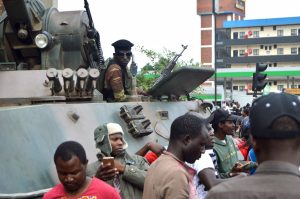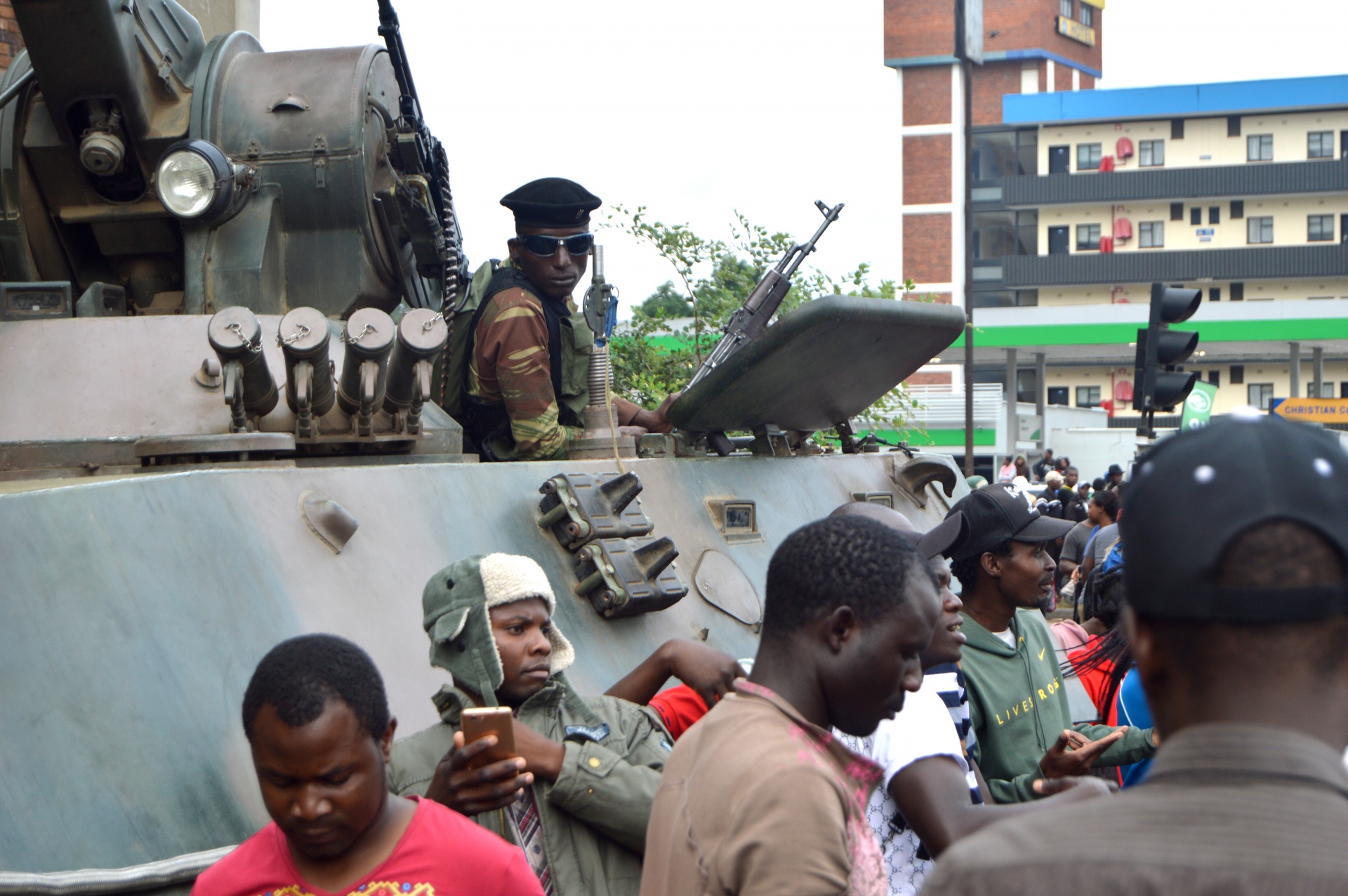The most visible attacks on African democracy noted in 2018 – large-scale, public protests and government shutdown of access to internet and social media –continue with enhanced speed in 2019.
He must have seen it coming. When President Mnangagwa decided to increase fuel prices by 150% in mid-January following a long period of general inflation, the public responded instantly. Urban Zimbabweans took to the streets of the major cities to protest to show their displeasure over political mismanagement and economic malaise. As Mnangagwa left for Russia to build alliances and attract investment, the government cracked down heavily on the protests. They forced internet providers to close down access, and for a few days the news of the violence perpetrated by government troops and government-controlled militias and gangs only trickled out, though the large scale of the crack-down has subsequently been documented.
Since the start of 2019, similar events have taken place in Gabon, Democratic Republic of Congo, Sudan and Tunisia. While 2018 saw a small decrease in the number of protest locations in Africa, an increase in fatalities in demonstrations were noted as repression “heavily thwarted outward displays of disaffection” according to ACLED’s annual report. Who protests? Why do Africa´s urban population protest, and how are governments responding?
The Zimbabwean case is illustrative. Protests are dominated by young men residing in urban areas, most often from precarious economic backgrounds. They are often organized and led by individuals from a middle-class background. As Lisa Mueller shows in her recent book, protest movements are most successful in building and sustaining protests when they are based on cross-class alliances.
The fuel price hike as a trigger is also a common trend. Protests typically occur in situations of worsening economic conditions, particularly if these conditions are widely attributed to a government that are reluctant to let go of power and has recently organized controversial elections. This makes it easier to build the cross-class alliances between a middle class motivated by political concerns and a precariat mostly motivated by economic concerns.
How are governments responding?
After the fall of autocratic regimes following large-scale, urban protests seen during the Arab Spring, authoritarian leaders have invested heavily in preventing them from happening and when they happen, from succeeding. However, there are limits to what even autocracies can and will do. Suppressing protest, particularly through lethal force, is costly. Repression can trigger both short-term backlashes in terms of generating sympathy for the protesters and long-term backlashes at the polls.
They are instead turning to smart repression. Authoritarian governments try to limit their direct involvement in violent crackdowns. Instead, African governments opt to work through non-state actors such as militias and gangs. In Zimbabwe, as in recent protests in Uganda, individuals in civilian clothes operated in tandem with security agencies in suppressing protests, according to a new report.
Lowering visibility is another key strategy and closing down access to the internet and social media during protest, now happens routinely particularly where government retain majority control of internet service provision. In Zimbabwe, government ordered the internet shut on the first day of protest and it remained off for most of the period of blatant repression. Though the courts later deemed this unconstitutional, the shutdown both made communication and coordination between protesters and the documenting of the repression for the outside world more difficult. While the ability of the Zimbabwean government to control the narrative remains uncertain, the internet shutdown did at least buy time.
The democratic backlash in Zimbabwe is still unfolding. As in other locations in Africa where economic situations are uncertain and politics is contentious, protests, and crackdown on protests, are likely to continue to play a prominent role.


